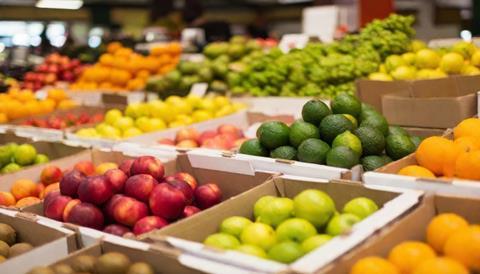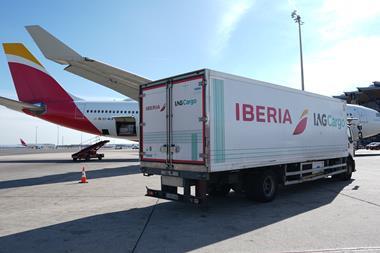
The UK government has delayed the introduction of border checks on produce brought into the country from the European Union (EU) for a third time.
The Department for Environment, Food and Rural Affairs (Defra) said yesterday that it had extended the easement of import checks on medium-risk fruit and vegetables imported from the EU from January 2025 to July 1 2025.
Defra said the easement is a temporary measure to ensure that new ministers have a full and thorough opportunity to review the planned implementation of further border controls, and an opportunity to listen to businesses across import supply chains.
The checks are being introduced as part of the UK's withdrawal from the EU. Three main risk categories were drawn up for imports of animals, animal products, plants and plant products into Great Britain: high risk, medium risk and low risk.
The first phase of this regulation came into force at the end of January this year, which required health certificates on EU goods ranging from cut flowers, to fresh produce including meat, fruit and vegetables.
This was followed by a second phase launched on 30 April, which began physical checks for products such as chilled and frozen meat, fish, cheese, eggs, dairy products and certain cut flowers and seeds.
A third phase, which would introduce physical checks on fruit and vegetables, has been delayed several times and has now been pushed back to July 2025.
Nichola Mallen, head of trade at Logistics UK, welcomed the news: "The news that government is delaying the reclassification of fresh produce and the need for additional costs and checks on these imports from the EU will be welcome news for those responsible for moving these goods into the country.
"It is vital that the movement of fresh food is undertaken as swiftly and seamlessly as possible to ensure goods in our shops are of the best possible quality, and this is something that the logistics industry has been pressing for for some time. It is good to hear that the government is listening to the concerns of our sector and taking action."
Meanwhile, a new report was published today outlining the impact of Brexit on the UK's exports to EU countries due to extra bureaucracy.
The Centre for Business Prosperity at Aston University reveals that the negative impacts of the UK-EU Trade and Cooperation Agreement (TCA) have intensified over time.
Monthly data show a 27% drop in UK exports and a 32% reduction in imports to and from the EU between 2021 and 2023.
"Agrifood, textile and clothing and material-based manufacturing have been among the hardest hit, with substantial declines in both export value and the variety of products exported," the report's authors stated.
"At the same time, some sectors such as tobacco, railway and aircraft manufacturing have seen modest increases in varieties of products exported.
"On the import side, most sectors have shrunk in both value and variety, particularly agrifood products, optical, textile and material-based manufacturing. A few sectors, for example, ships and furniture, have demonstrated noticeable increases in import product variety."
The researchers make recommendations, outlining how sector-specific negotiations, streamlining customs procedures with digital technologies and reducing regulatory divergence could mitigate some of the impacts.
https://www.aircargonews.net/monthly-exclusive/airfreight-capacity-conundrum-as-peak-season-approaches/















